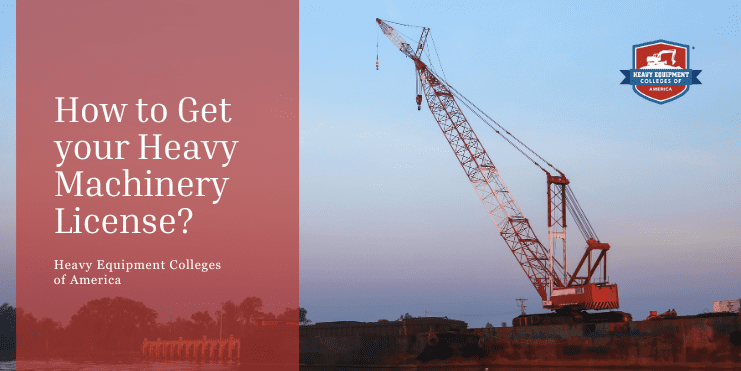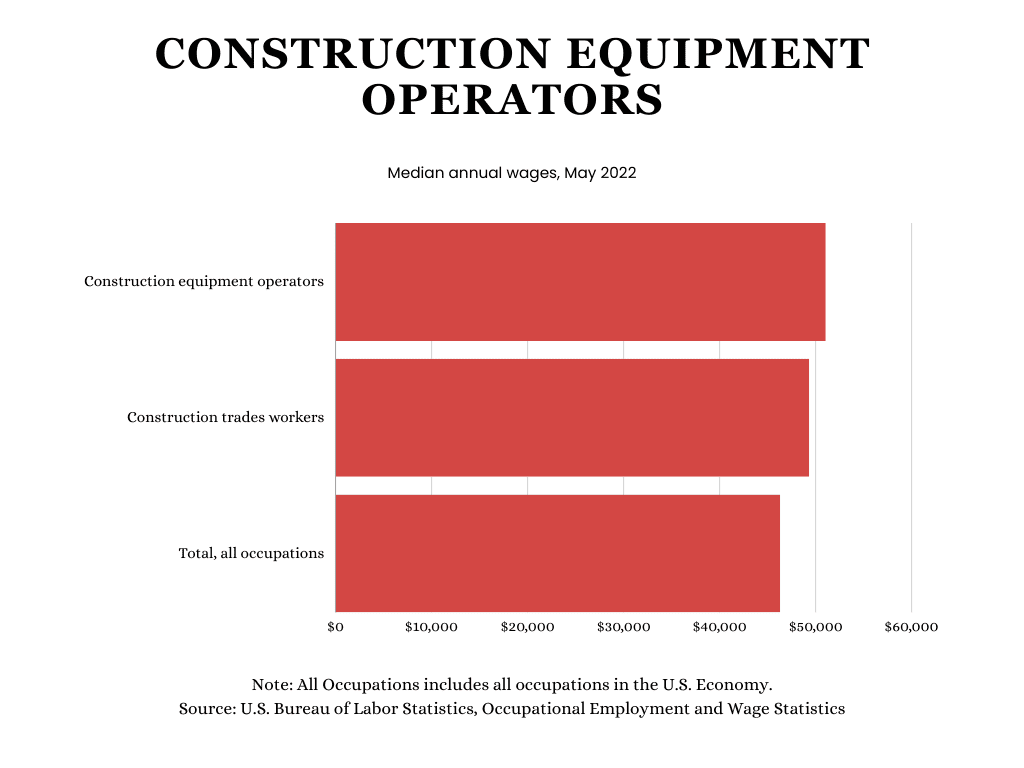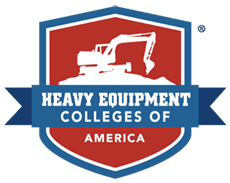Earning a heavy machinery license is the first step to starting a career as a heavy equipment operator. Obtaining your license not only equips you with the skills and experience that will set you up for success but also makes you a more attractive candidate to potential employers.
But what are the requirements to earn your heavy machinery license, and how do you know if you’re qualified for a prerequisite training program? As your trusted source for all things heavy machinery, Heavy Equipment Colleges of America (HEC) is here to help you navigate the licensing process. Let’s take a look below at the key requirements and qualifications for earning your operator license.

Who Needs a Heavy Equipment Operator License?
While not legally required, any heavy equipment operator should obtain a license if they want to secure employment in the field. This license shows the operator understands the basics of heavy equipment operation and has experience working with machinery they’ll use on the job. Crane operators in particular have strict licensing requirements.
Heavy Equipment Operator License Requirements
Wondering how to get your heavy machinery license? These are the criteria you must meet.
- Be at least 18 years of age. You must be 21 if a job requires you to move heavy equipment across state lines.
- Have a valid driver’s license
- Pass both written and practical exams
- Pass a vision test and obtain a medical certificate proving you’re physically able to operate heavy equipment
- Finish entry-level driver training if you plan to obtain a CDL (Commercial Driver’s License)
- Abide by all substance abuse policies set by your licensing agency, whether it be the NCCCO (National Commission for the Certification of Crane Operators) or another organization.
License Requirements: Cranes Operators vs. Others
Crane Operators
As of 2010, OSHA (Occupational Safety and Health Administration) requires all crane operators to complete an accredited training or certification program before operating any type of crane. Many states have similar regulations in place for crane operators. For example, earning an NCCCO certification qualifies you for a crane operator license in many states. If you complete an accredited training or certification program—like those offered by the NCCCO—the state in which you plan to operate will issue your license. Operators must pass a written and practical exam to obtain a license. Some states also require crane operators to complete an apprenticeship program before seeking employment.
Other Operators
The only license other heavy equipment operators might need to obtain is a CDL, which is required to operate heavy equipment weighing more than 26,000 pounds or a trailer weighing more than 10,000 pounds. The federal government sets CDL standards, and state governments issue the license itself. CDLs are typically required to operate heavy machinery like bulldozers and dump trucks. Applicants must pass a written and road test to obtain a CDL. Additional licensing requirements are left to the discretion of employers.
Can a Heavy Equipment School Give Me My Equipment Operator License?
While heavy equipment schools like HEC and certification organizations like NCCCO train students to earn their operator license, they don’t issue the license itself. The state government issues all heavy equipment operator licenses. Licenses must be renewed after a set number of years to remain valid.
Can You Operate Heavy Equipment Without a License?
Some types of heavy equipment can be operated without a license, like backhoes and skid steers. Any equipment that isn’t a crane and doesn’t weigh more than 26,000 (if a truck) or 10,000 pounds (if a trailer) can legally be operated without a license. However, most employers won’t hire candidates who aren’t licensed, which is why we recommend obtaining a license regardless of state or federal requirements.
How to Become a Heavy Equipment Operator & Earn My License
These are the steps you should take if you want to get your heavy equipment operator license.
1. Earn your high school diploma or GED
Most heavy equipment training programs require candidates to have either their high school diploma or GED to enroll. Educational background is also something employers consider when hiring job candidates.
2. Complete proper training
Enroll at a college or technical school to learn from industry experts and gain the hands-on experience employers want. A training program will teach you industry best practices and troubleshooting techniques and allow you to work with equipment you’ll use on the job.
3. Acquire additional licenses and certificates
Depending on the type of heavy equipment you’ll be operating, you might need to obtain an additional license or certification. For specific equipment like excavators, consider obtaining a Certified Operator Qualification (COQ) from the IUOE. This will enhance your skillset and make you a more competitive candidate for excavator operator positions. Cranes in particular often require special licenses and certifications. Check with your training provider and state government to see what requirements you must meet.
What Is the Job Outlook of Heavy Equipment Operators?
Heavy equipment operators—many of whom work in the construction industry—drive and control heavy machinery used to create various structures, like buildings and roads. According to the BLS (Bureau of Labor Statistics), employment for construction equipment operators has a projected 3% growth rate from 2022 to 2032. An estimated 42,300 new jobs will open annually over the decade. Construction equipment operators earned a median annual wage of $51,050 in May 2022.

Find an Accredited Heavy Equipment School Near You
Are you ready to take the next step in your heavy equipment career and secure your operator license? Apply to one of our accelerated training programs, like Certificate of Heavy Equipment Operation – Level 1 or Level 2. These programs offer comprehensive training and certifications you need to operate a variety of machinery, including cranes, excavators, and bulldozers. Get hands-on experience and personalized classroom instruction in as little as three weeks. Don’t wait, start your enrollment process today and launch your heavy equipment journey!

